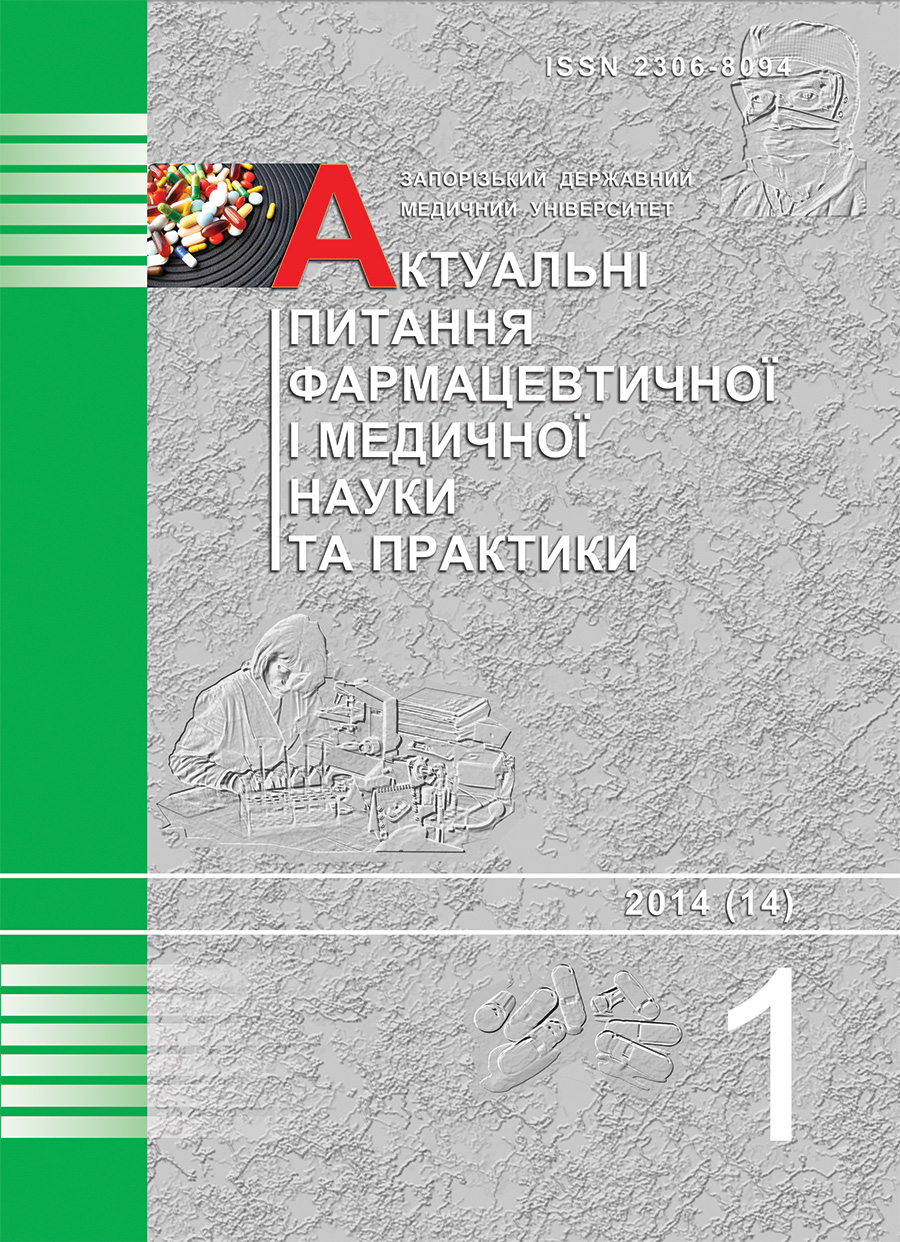Cognitive teaching methods in the process of studying pharmaceutical management and marketing
DOI:
https://doi.org/10.14739/2409-2932.2014.1.24941Keywords:
cognitive training methods, Pharmaceutical Management and MarketingAbstract
Some cognitive methods (method of empathy, the method of the symbolic vision, method comparisons, the method of the facts, research method, the method of error prediction method) have been considered in the article, and the problems and peculiarities of their use in the study of pharmaceutical management and marketing have been identified.
References
Фармацевтична енциклопедія [Електронний ресурс]. – Режим доступу: http://www.pharmencyclopedia.com.ua/article/309/farmacevtichna-diyalnist.
Полинская Т. Справочник фармацевтического работника / Т. Полинская. – Ростов н/Д : Феникс, 2003. – 635 с.
Ахметова Л.В. Методы когнитивного обучения: психолого-дидактический подход / Л.В. Ахметова // Вестник ТГПУ. – 2009. – Вып. 7(85). – С. 48–52.
Андреев В.И. Педагогика: учебный курс для творческого саморазвития / В.И. Андреев. – Казань : Центр инновационных технологий, 2000. – 608 с.
Гін А.О. Прийоми педагогічної техніки. Вільний вибір. Відкритість. Діяльність. Ідеальність / А.О. Гін. – Луганськ : Навчальна книга, 2004. – 275 с.
Житник Б.О. Методичний порадник: форми і методи навчання / Б.О. Житник. – Х. : Основа, 2005. – С. 23.
Хуторской А.В. 55 методов творческого обучения : методическое пособие / А.В. Хуторской. – М. : Эйдос, 2012. – 42 с.
Downloads
How to Cite
Issue
Section
License
Authors who publish with this journal agree to the following terms:
- Authors retain copyright and grant the journal right of first publication with the work simultaneously licensed under a Creative Commons Attribution License that allows others to share the work with an acknowledgement of the work's authorship and initial publication in this journal.

- Authors are able to enter into separate, additional contractual arrangements for the non-exclusive distribution of the journal's published version of the work (e.g., post it to an institutional repository or publish it in a book), with an acknowledgement of its initial publication in this journal.
- Authors are permitted and encouraged to post their work online (e.g., in institutional repositories or on their website) prior to and during the submission process, as it can lead to productive exchanges, as well as earlier and greater citation of published work (See The Effect of Open Access)

